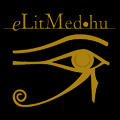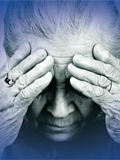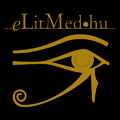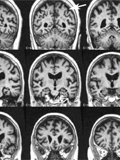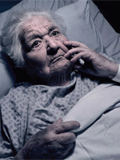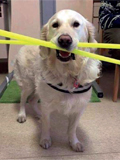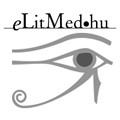The eLitMed.hu medical portal uses computer cookies for convenient operation. Detailed information can be found in the Cookie-policy.
Lege Artis Medicinae - 2019;29(01-02)
Content
[Our stubborn misbeliefs on ageing ]
[Stressing the continuous increase of elderly population, the author demonstrates the negative impact of technical development on everyday routines of old population. It can explain that members of younger generations often create false ideations on mental and cognitive abilities of older ones, and consequently some stubborn misbeliefs are existing here. He deals with the following four of them in details: (1) Young age means worth, while old age is equal to deficit, (2) Every old person becomes demented, (3) Elderly people loose their interest and social sensitivity, (4) Old people means ballast for younger ones. The author emphasizes, that even the elderly persons are able to fall into these traps of misbeliefs. In addition to complex refutations, he states that the “spacecraft-model” described by L. Hayflick offers efficient solutions to preserve an adequate quality of life both for old people and their society. ]
[Biological rhythms and ageing ]
[Biological rhythms plays key role in maintaining health and preventing diseases. The changes of rhythms are normally associated to aging. Biological rhythms become more fragile along with the age and therefore they are connected to various age-related health problems. The interest about the strategies aiming to maintain or restore biological rhythms is increasing. There are evidences about the beneficial effect of rhythm restoration therapies in dementia and depression, but future studies are needed to clarify the general health promoting and also geroprotecting effect of these interventions. ]
[Eight questions and answers about anxiety in the elderly in family practice ]
[Anxiety is one of the most common psychological disorders in the elderly. Physical illnesses contribute to its development, but the opposite is also true: anxiety adversely affects the prognosis of many somatic illnesses, thus significantly enhancing morbidity and mortality. Therefore, the recognition and adequate treatment of anxiety disorders in the elderly are especially important in family practice, too. With the increase of life expectancy, the problems and illnesses of the elderly receive more and more attention in medical practice and anxiety cannot be ignored either, because the early detection of its symptoms improves the quality of life and reduces the chance of bad prognosis. ]
[Early detection of patients with dementia in Primary Care ]
[Mental decline is becoming more and more frequent in the elderly these days. The symptoms of dementia may be best detected early in family practice. Physicians may detect the symptoms of mental decline of different levels. General practitioners play an important role in the early detection of patients with dementia. General practitioners keep contact and communicate with the caretaker of the patient regularly. If necessary General Practitioners visit the dementia patients in their own home environment, they can assess their patients’ circumstances and needs and if needed, they can prescribe home care. ]
[Pharmacotherapy of dementia ]
[The goal of treatment of dementia-related disorders is to reserve cognitive and functional ability, minimize behavioral and psychological disturbances, and slow disease progression, since currently available therapies can not reverse the pathologic processes. Among them, the most common is Alzheimer’s disease and vascular dementia. The authors review the therapeutic guidelines of these dementia types adapted to Hungarian conditions. Cholinesterase inhibitors represent first-line therapy for patients with mild to moderate Alzheimer’s disease, whereas a glutamate N-metil-D-aspartate antagonist is used in the treatment of moderate to severe Alzheimer’s disease. In milder stages, pharmacotherapy may be supplemented by the use of nootropics. The progression slowing drugs have not only impact on cognitive symptoms but also affect behavioral and psychological symptoms. Depending on the severity of dementia and the existence of behavioral and psychological symptoms, these medicines may be recommended as monotherapy or in combination. To further alleviate behavioral and psychological symptoms a variety non-pharmacological methods are known, at present their effectiveness has not been proven. Antipsychotics may be used to reduce agitation and aggression. Taking into account the side effects profile of antipsychotics, tiapride or risperidon administration can be considered. In the case of their ineffectiveness, haloperidol may be used. ]
[Delirium in the elderly: a common and generally overlooked syndromE ]
[Delirium is a disorder of the vigilance of attention and consciousness, and cognitive functions caused by brain disorders. It has an acute onset and a potentially fluctuating course. The neural dysfunction, which is responsible for the development of this syndrome often appears as a secondary condition due to systemic disorders. This is not a psychiatric illness: primary mental disorders do not cause troubles in the vigilance of consciousness. Among the elderly it occurs rather frequently, might affect approximately a seventy five thousand elderly people in our country. Shockingly, almost two-thirds of these cases remain unrecognised, which has a significance for public health since it increases markedly the risks of morbidity and mortality. Due to the frequent multimorbidity and polypragmasia, the treatment of this syndrome is a challenge requiring complex medical knowledge. Systematic non-pharmacologic preventive strategies have particular significance in its care. ]
[Medical and supportive tasks for patients with severe dementia ]
[This summarizing paper demonstrates the main elements and tasks of severe dementia care of patients. Dementia care is provided on three levels of competence: level of specialist’s, that of physician’s and of caregiver’s/supporter’s. Because of increasing gravity of tasks during the progression of dementia the caregivers become(s) risk-persons from psychopathological points of views. The most important tasks of the everyday care are summarized in tables and the main factors of predominantly emotional character, which can limit the results are also demonstrated. Application of some up-to-date institutional solutions, which can optimize the patients’ care is also listed. Supposing an ever increasing burden of dementia care, author delivers an important message also for members of the younger generations. ]
[Animal-assisted therapies for the treatment of elderly dementia ]
[The therapeutic value of the relationship between humans and animals should be considered in the cases of patients suffering from dementia with the onset in old age. This paper provides an overview of the animal assisted interventions in dementia. Reviews emphasize the positive effects of pet-keeping on mental and physical quality of life. However, it can also have adverse effects unless the pet is selected with caution. Regular animal assisted therapies within institutional framework provide a valuable potential programme for the patients in care. Articles published so far depict the physiological, social and psychological output variables of animal assisted therapies. The enhancement of social behavior is considered to be a specific factor of animal assisted therapies. Among the physiological symptoms the enhanced physical activity, the decrease of stress response and sympathic activation have been highlighted. Among the psychological functions reduction of state anxiety, mood lift and the reduction of negative emotions such as isolation and abandonment should be underlined. Acknowledging the available results, it seems that cognitive efficacy is less impacted directly by animal assisted therapies. However, promising results have been acquired in the alleviation of the behavioural and psychological symptoms related to dementia ]
[Psychological resources of positive aging ]
[This study has four parts. In the first part of the study the career of successful aging construct has been presented through the literature of gerontology from Cicero until nowadays while highlighting the problems that were until now hindering the validation of that scientific construct. Suggestions for kin concepts instead of successful aging (e.g. active, optimal, vital, effective aging) have been reviewed in detail. The second part of the paper presents the results of longitudinal and cross sectional empirical studies about influencing factors of successful aging. The third part refers to the research outcomes of ageing people by the positive psychology and suggests the definition of positive aging as a state of good biological, psychological, social and spiritual functions which coincides with above average levels of psychological immunity and coping capacity and abilities of inventing successful strategies in the day-to-day practices. The fourth part of the paper describes an empirical study with 7,506 participants and demonstrates how the (emotional, psychological, social, spiritual) components of well being contribute to the maintaining of old-age physical and mental health further the psychological immunity, savoring capacity, positive orientation and flourishing. While comparing the flourishing levels of specific age groups there was a clear decline of individuals above 65 years with weakening psychological immunity. The study defines positive aging as the ability to maintain flourishing under fire of ageing associated challenges.]
[What brings ICD-11 to psychiatry? ]
[On 18 June 2018, after 10 years of working the World Health Organization released the 11th edition of International Classification of Diseases. User-friendly development was a definite goal. For the first time, it is completely electronic. The renewal in regard to both formal and content aspects reflects dynamic development of medicine. It contains new chapters on immune system disorders, sleep disorders, sexual health and traditional medicine. The new edition contains 55000 possible codes. It comes to effect from January 2022 in the member states and that requires users, doctors, insurers, and universities to be well prepared. Coding of mental and behavioral disorders also changes significantly. Following a brief general description we look at the most important changes in the field of psychiatry. ]
1.
Clinical Neuroscience
Is there any difference in mortality rates of atrial fibrillation detected before or after ischemic stroke?2.
Clinical Neuroscience
Factors influencing the level of stigma in Parkinson’s disease in western Turkey3.
Clinical Neuroscience
Neuropathic pain and mood disorders in earthquake survivors with peripheral nerve injuries4.
Journal of Nursing Theory and Practice
[Correlations of Sarcopenia, Frailty, Falls and Social Isolation – A Literature Review in the Light of Swedish Statistics]5.
Clinical Neuroscience
[Comparison of pain intensity measurements among patients with low-back pain]1.
Clinical Neuroscience Proceedings
[A Magyar Stroke Társaság XVIII. Kongresszusa és a Magyar Neuroszonológiai Társaság XV. Konferenciája. Absztraktfüzet]2.
3.
Journal of Nursing Theory and Practice
[A selection of the entries submitted to the literary contest "Honorable mission: the joys and challenges of our profession" ]4.
Journal of Nursing Theory and Practice
[End of Life and Palliative Care of Newborns in the Nursing Context]5.
Journal of Nursing Theory and Practice
[Aspects of Occupational Health Nursing for Incurable Patients ]



